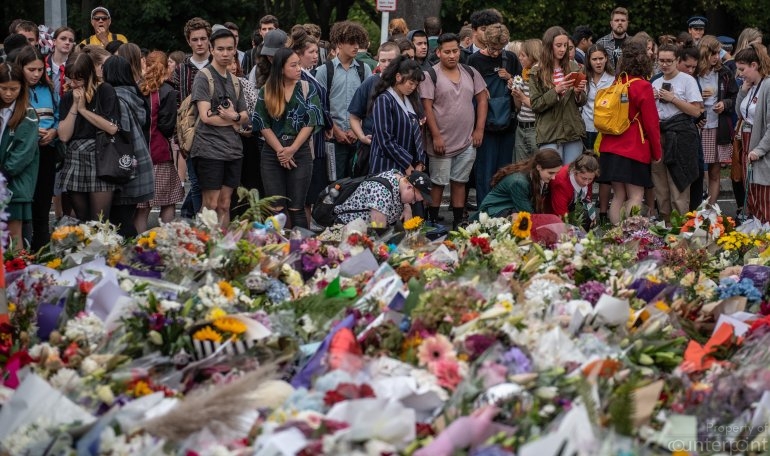
Not only was New Zealand’s taken-for-granted peace shattered but also popular theories about the evolution of history reduced to tatters when ‘Lone Wolf’ terrorist Brenton Tarrant opened fire on two New Zealand mosques a few days back and cold-bloodedly killed some 50 worshippers. Among other things, we are reminded that no country could be declared as absolutely safe from terror today.
Tarrant joins Anders Behring Breivik of Norway as a contemporary ‘Lone Wolf’ terrorist marked by ruthless efficiency of the most chilling kind. Breivik hit the headlines some years back when he shot and killed scores of unarmed Norwegian civilians for no apparent reason. However, evidence points to the strong possibility that they are both on the extreme Right, politically speaking. The fact that both killers, apparently, operated alone earns for them the label ‘Lone Wolf’. Further investigations need to be carried out to ascertain whether they in fact acted alone or whether they possessed links to organizations espousing Right wing terrorism.
However, if these incidents of mass-scale killings by reportedly Right wing extremists are to be studied scientifically one would need to concede that there is increasing ‘space’ or opportunities in the contemporary world ‘disorder’ for the application of terror of this kind. It could be said that the environment has been created over the years for the proliferation of such terror.
While Breivik’s closeness to Nazism was revealed at the time of his killings, it is established that Tarrant had travelled widely in the Balkans in and was quite enamoured of the Serb militancy of the early nineties. It is reported that Tarrant, had, over the past few years travelled in countries, such as, Israel, Pakistan, North Korea, Greece, Croatia and Bulgaria. Of special significance is the revelation that he was particularly adulatory of Serb military strongmen, such as Slobodan Milosevic, who are today facing war crimes accusations in international war crimes tribunals.
These background facts are of tremendous significance when it comes to ascertaining the roots causes of the resurgence of Right wing terror today. The Balkan wars of the early nineties coincided with the unprecedented onset of globalization and the disintegration of the Cold War world order. Those were also the times when identity issues exploded into prominence in international politics.

Freed from the shackles of the Cold War and its political polarities, those communities that saw themselves as nations considered themselves free to determine their political futures independently. Essentially, these trends set the pace for the disintegration of the Soviet Union and the onset of the Balkan wars which were basically all about the seeking of national self-determination by East Europe’s principal communities in particular. The break-up of Yugoslavia into a multiplicity of states, including Serbia, Bosnia-Herzogovina, Macedonia and Croatia epitomized these disintegrative tendencies which coincided with massive bloodshed and war.
However, despite such evidence that tended to explode their optimistic theorizing, there were those political scientists of the West who had visions in the nineties of what was termed an ‘End of History’. In terms of this theory, ‘History’ was synonymous essentially with the development of the Cold War and once the Cold War came to an end, ‘History’ too was seen as reaching a close. Furthermore, this ‘End’ was seen as paving the way for the world wide, free emergence and victory of liberal democracy and free market economics, now that communism was defeated and was no more.
What the upholders of the ‘End of History’ theory expected basically was the flourishing of liberal democracy and capitalism and this has occurred to a degree in the 21st century but we are also witnessing the explosive emergence of identity politics in its most virulent and violent forms. That is, nationalist violence has come to its own in these times.
The phrase ‘comes to its own’ needs stressing. This is because with this round of nationalist violence inside and outside Europe, along with the marked rise of the political Right, the world seems to be getting back to the political tendencies of the turn of the last century – the years that set the stage for the First World War and the subsequent Second World War. And it was nationalism of the virulent, narrow kind that essentially triggered these catastrophic conflicts.
It does not follow from the foregoing that we are going to have on our hands more conflagrations of the World War kind but Right wing nationalist violence will be around for the foreseeable future, making it possible for terrorism of all kinds, including that of the ‘Lone Wolf’ sort, to flourish.

If analysed closely, even ISIS terror is traceable to the above tendencies in international politics. ISIS violence could be described as identity politics in one of its most destructive and inhuman forms. What made it possible was the perception among some communities of the Middle East and West Asia that they were being persecuted and oppressed. The result was murderous identity-based violence. Right wing violence in the West is a reaction to such terror.
Accordingly, history is not marching in the direction of unfettered and thriving worldwide liberal democracy. The market system is flourishing widely but there is a huge question mark over the future of democracy. And there seems to be this curious twist in contemporary history which consists in the fact that humanity is not moving forward progressively to a better future in terms of freedom, equity and development. Rather, mankind seems to have moved back to those years of nationalist-based conflict and contention of the turn of the 20th century. Needless to say, this has profound implications for the perspectives we place on history.




